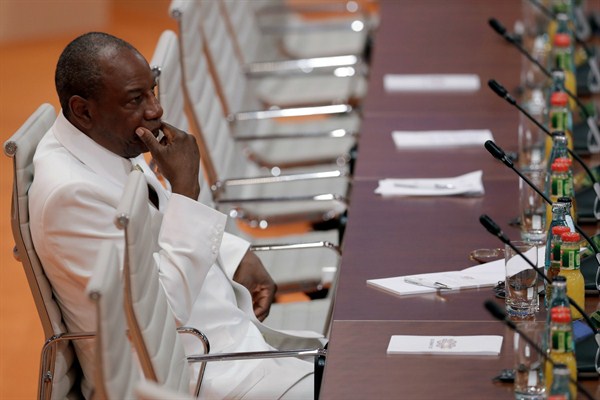Editor’s Note: This article is part of an ongoing series about press freedom and safety in various countries around the world.
In late November, 40 leading radio stations in the West African nation of Guinea suspended their programming in an act of solidarity with another radio station that was closed by the government. The protest was a sign of the growing tension between the government of President Alpha Conde and the Guinean press. In an email interview, Muheeb Saeed, a program officer at the Media Foundation for West Africa, explains what was behind the recent protest, and how press freedom in the country is coming under attack.
WPR: What led to the recent coordinated suspension of programming by 40 radio stations in Guinea, and what does it say about the state of Guinean media and its relationship with the government?

